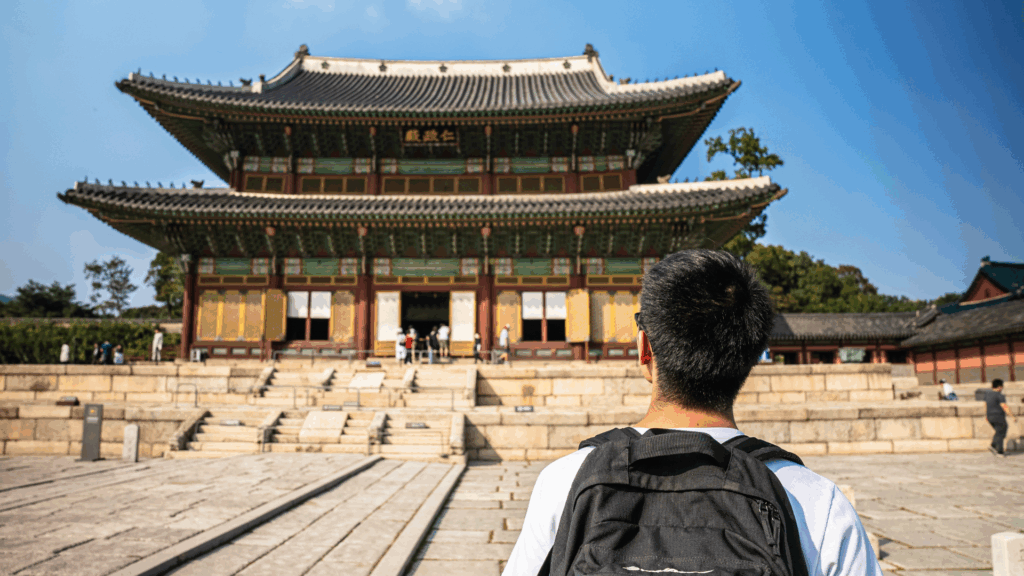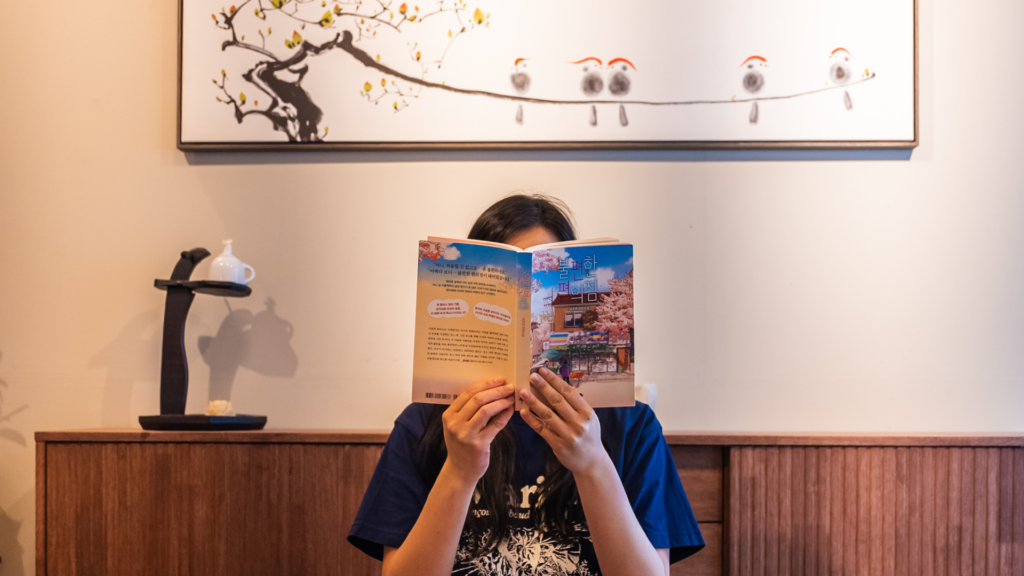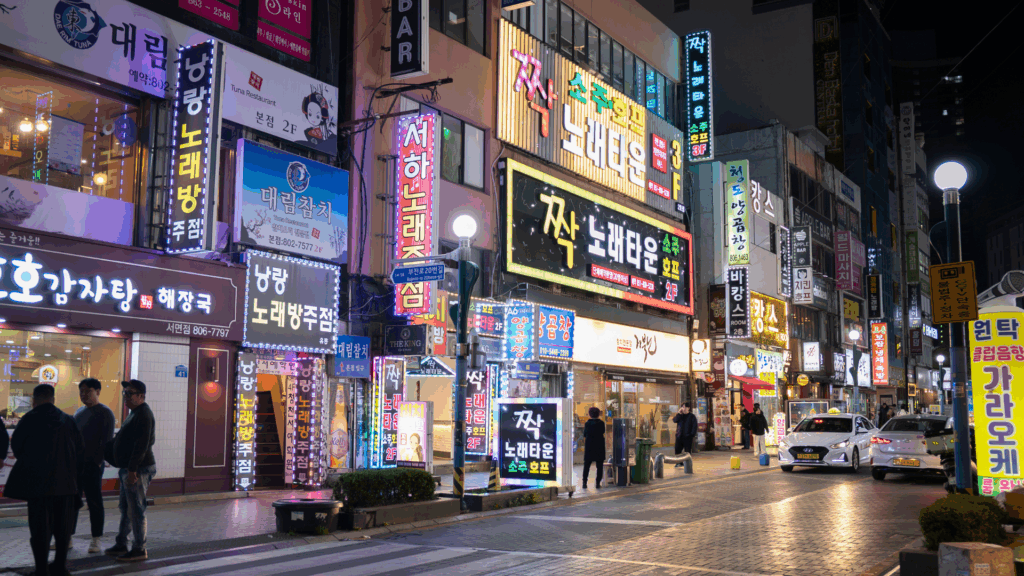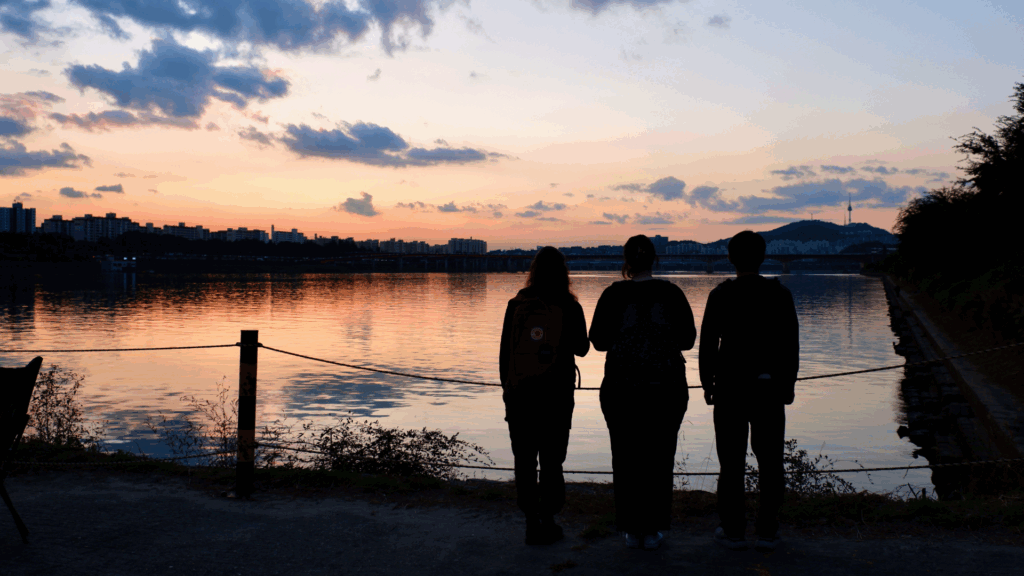Have you ever imagined what it would be like to move and live in Korea long term, study, and eventually work there? Many people dream of this lifestyle but don’t know where to start. Questions like what the requirements are to study in Korea, whether you can start from the basics of the language, and what you need to prepare often come to mind.
At Go! Go! Hanguk, we know how daunting it can be to figure out all the things you need to move abroad from your home country. That’s why we’ve put together a comprehensive article on how to live in Korea long term with a recommended 10-year visa plan designed for students.

First of all, is Korea the right place for you?
Moving abroad to a new country can be scary, especially if you’ve never visited it. How much do you really know about Korea? Is it really the place for you?
If you want to experience the country before going to live in Korea long term, try an immersive short trip with other fellow international students! You can do so by taking part in our Korea Study Trips. Our Study trips combine two to three weeks of intensive Korean language classes in the morning with fun cultural activities in the afternoon. You’ll experience both the traditional and modern sides of Korea, meet people from all over the world, and see what life here could be like.
Another option is to explore our Korean online courses or try our Hangul Quest app to learn the Korean alphabet before you go. This will give you a head start and make your future transition smoother.
Once you’ve made up your mind that living and studying in Korea is the right choice for you, it’s time to get started with your long term plans.
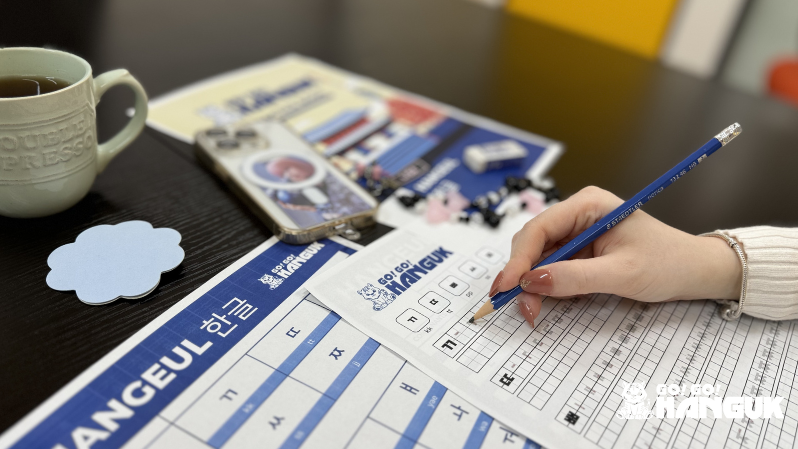
Years one and two: Master the Korean language
If you are planning to live in Korea long term, the first step to take is to learn the language. This is particularly important, especially if you are considering working in Korea in the future.
This is because most Korean companies require foreign employees to speak advanced-level Korean, apart from having a university degree. Although this may vary depending on one’s experience or on the company industry, it’s something to keep in mind in your long term plans.
If you start as a beginner, you can usually reach an advanced level after two years of intensive study. Universities in Korea are the only institutions that can sponsor a long term student visa for language learning, so you’ll need to commit to a program. This will help you move forward with your studies or with your career aspirations.
As just said, to study long term and get a student visa, you’ll have to apply to the Korean language program of universities in Korea. This type of visa is called D-4 – this is the student visa required by international students whose plans are to study Korean in Korea for at least 6 months. Go! Go! Hanguk can help you find a language program and get your Korea student visa!
For more information about the D-4 student visa, read our article here.
Korean language classes at universities are intense and at a fast pace. Their language programs are divided into 4 terms per year (with some exceptions with 2 semesters per year), from Monday to Friday, around 4 hours per day. School terms start in March, June, September, and December, and each term lasts 10 weeks (8 weeks in some cases).
On a D-4 student visa, you can study up to 2 years, starting from a minimum of 6 months of application. If you want to know more about how Korean language program terms work, read this article.
Can I work part-time during my Korean studies?
If you come to Korea with the intention of studying Korean on a D-4 visa, you can work part-time after the first 6 months. Schools and Immigration set this rule mainly to let students adapt to the new lifestyle in a new country and to improve their language level so that they can handle everyday conversations.
When looking for a part-time job, you’ll have to prepare a resume in Korean, connect with local employers, and sign a contract. A great chance to practice real-life Korean! Even a basic level of speaking and understanding will help you get started, and your skills will naturally improve as you work.
There are other things to be aware of when aiming to work part-time in Korea, such as the 20 hours allowed per week or having a TOPIK level 2. We recommend that you read this article about working part-time in Korea.

Years three to six: Further education in Korea
If you don’t have a university degree, you can aim to get one by completing an undergraduate program at a university in Korea. In fact, when your D-4 visa expires after two years, the next step is to continue your education by enrolling in an undergraduate or graduate program, which will allow you to switch to a D-2 visa.
Depending on your goals, there are many different majors that you can choose from and that provide a D-2 student visa. This differs from the D-4 visa, because it’s specifically required by undergraduate and graduate international students in Korea.
University programs in Korea vary, as do their admission requirements. We recommend that you do some research or ask the Korean language department of your university during your D-4 visa period to gather information on the application process for the undergraduate program.
Note that in Korea, university programs start in March and September of each year. You’ll get the chance to start as soon as your language course ends, and you’ll be able to convert your D-4 visa to a D-2 visa with the support of your destination university. Here we’ve put together an article about how to apply to a university in Korea.
Those who wish to study at a university will need at least four years to complete a Bachelor’s degree, two years for a Master’s, and at least three years for a PhD.
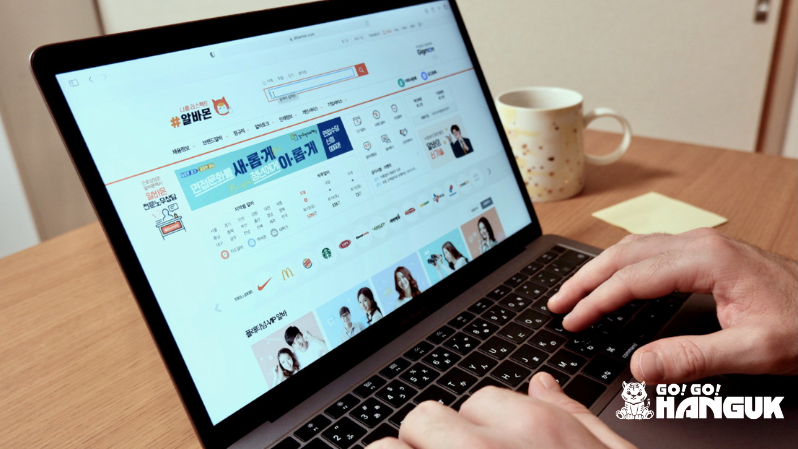
Years eight to ten or further: Work in Korea
Finding employment in Korea allows you to continue your life in Korea after university studies. Please note that not all employers are able to sponsor a work visa for you. It is important to apply to companies that offer visa sponsorship for their international employees. This information may not be explicitly stated in the job posting, so please be sure to ask about visa sponsorship during the application process.
If you want to have a smooth transition from your student visa to an employment visa, be sure to search for a job while you are still in university to secure a job prior to graduation. The student visa period of stay may end very soon after your studies end; therefore, you will want to have a job secured with visa sponsorship in order to transfer to the employment visa as soon as you graduate.
If you are unable to secure a job right after graduation, you may run the risk of having to leave Korea and return later once you find a job.
If you have a university degree, there are several job options in South Korea. Teaching English is one of the most popular and accessible choices for foreigners. You can also find opportunities in technology, manufacturing, and IT, especially with international companies. Keep in mind that the job market in Korea is very competitive, so having a degree in a specialized field, relevant work experience, and good Korean language skills will greatly improve your chances.
How does job searching work in Korea
Job searching in Korea can generally be divided into two categories: small- to medium-sized businesses (SMEs) and chaebols (conglomerates).
Most SMEs will not have a set recruitment or application period, and generally post openings on Korean job portals as they arise. The interview process may be more informal in comparison to applying at a chaebol.
For chaebols, there is normally a set recruitment or application period for new entry-level employees in a given year. This may include things like an aptitude test or exam and various interview stages in a group or individually, depending on the position. For many chaebols, there will be thousands of candidates for just a few hundred positions. If you wish to apply to a chaebol, it is recommended to prepare well in advance for their hiring process, which may include extra studying specifically for their aptitude test or interview questions.
The visa period may be as short as one year since many contracts are extendable or renewable on an annual basis. This could vary depending on the position or company.
It is also important to note that your employer may stipulate that you cannot have any other employment while working for their company. The visa regulations also play into this rule, as visas are granted for specific types of employment/industries.
Ready to dive into your new life in South Korea? Contact us to get your journey started with Go! Go! Hanguk, we will help you find the right option for you!
